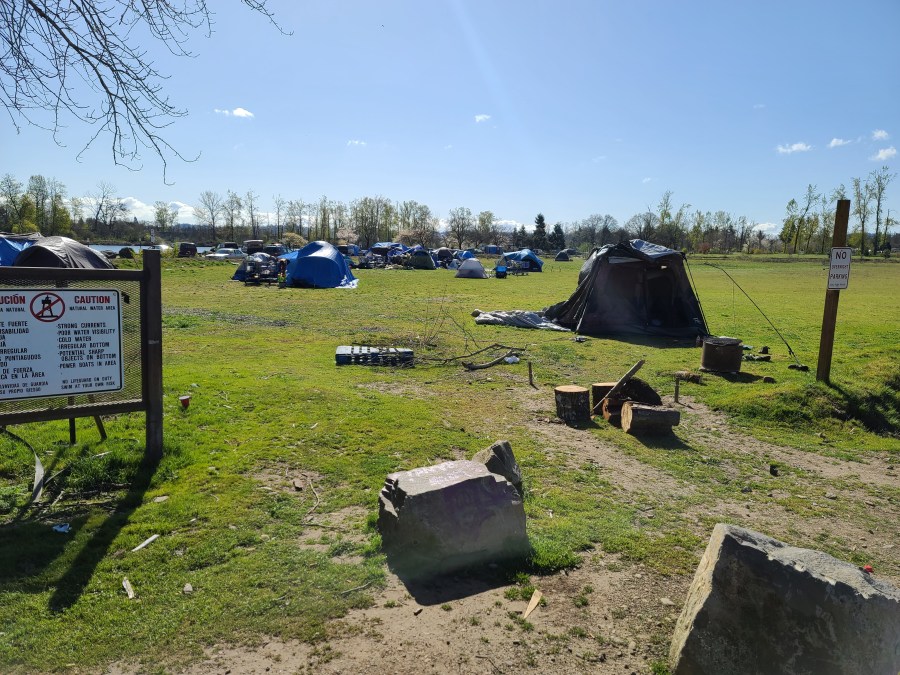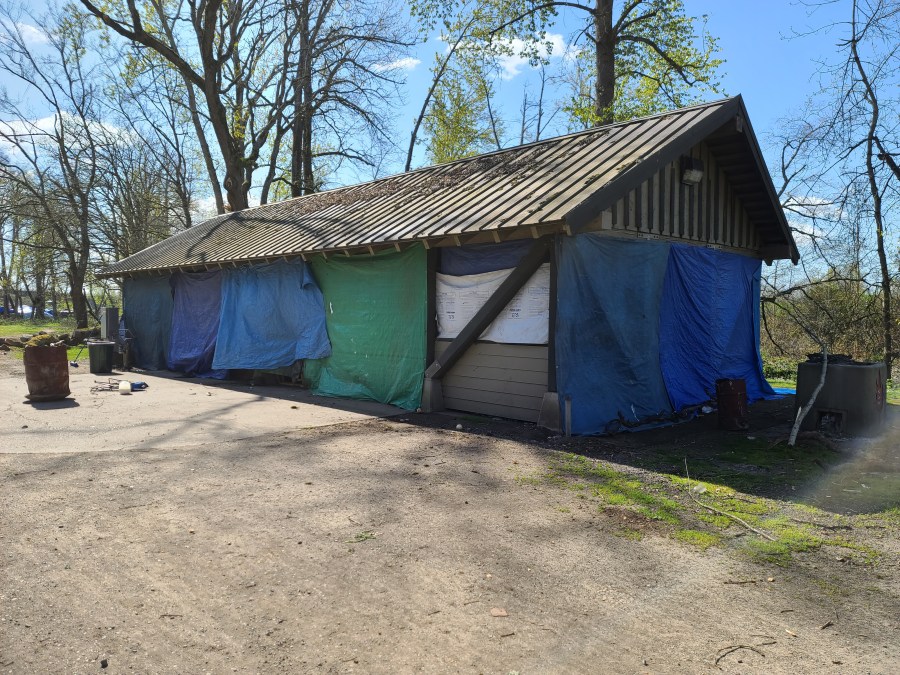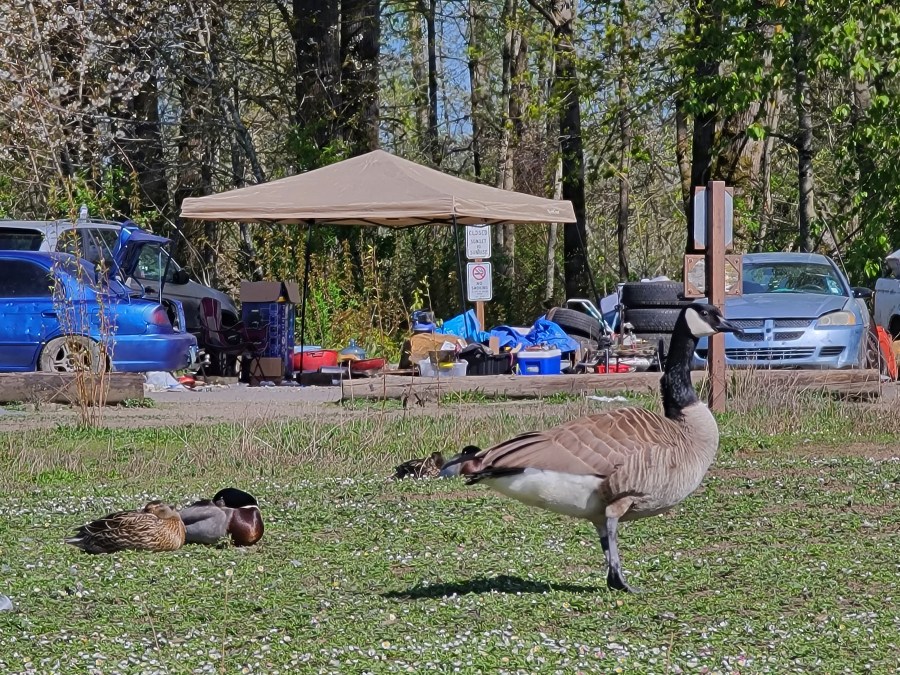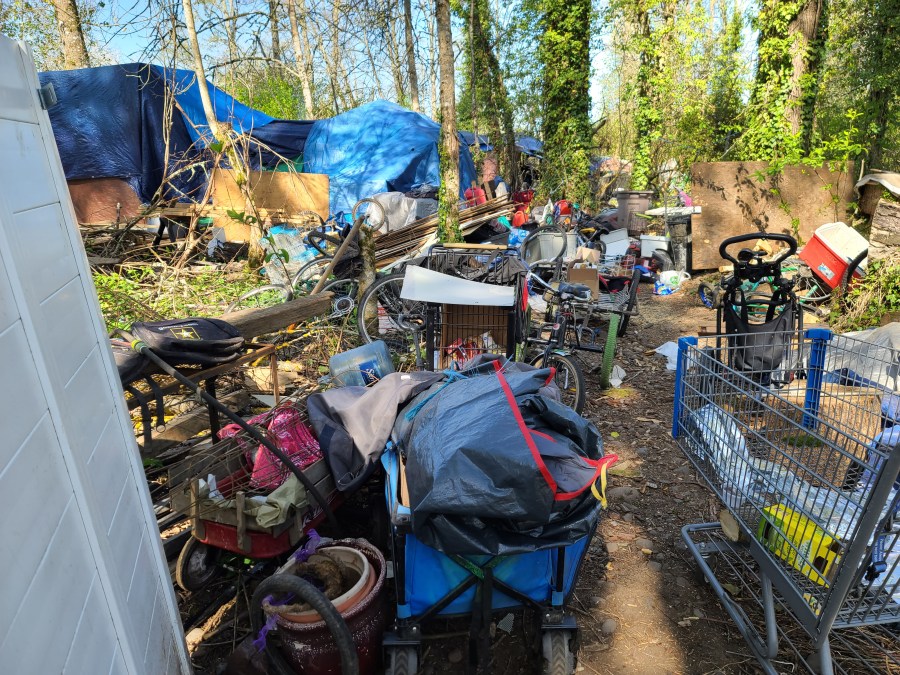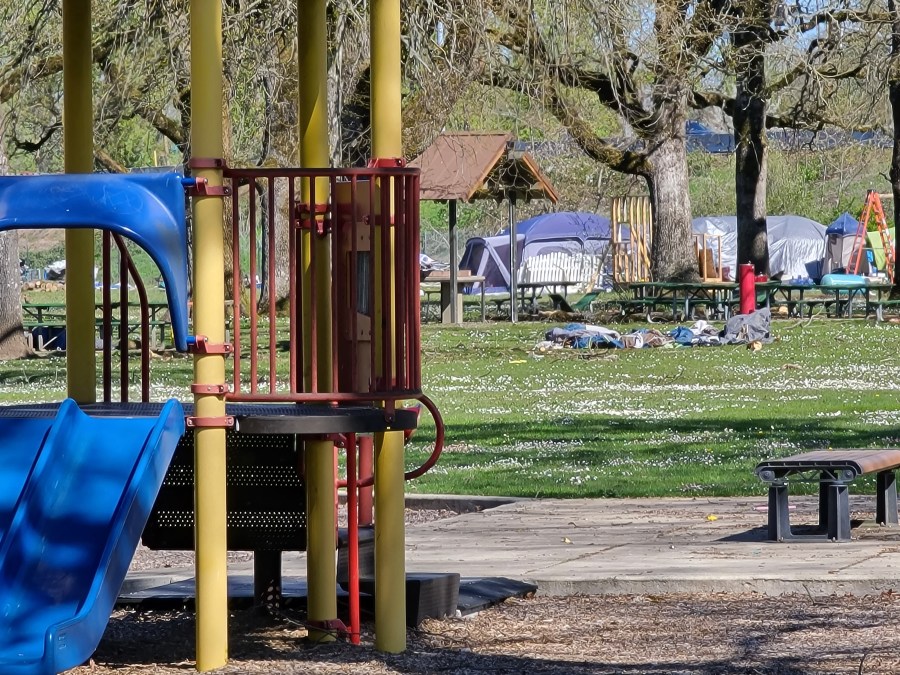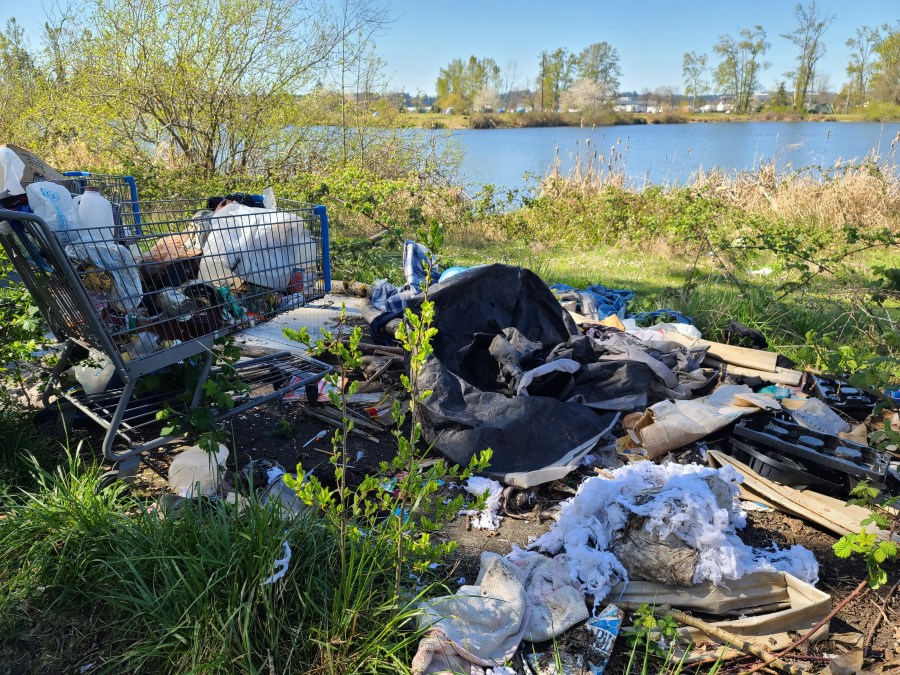SALEM, Ore. (KOIN) — The City of Salem will soon start moving people experiencing homelessness out of city parks starting June 1, after allowing them to camp there for more than a year and hearing outcry from those who live nearby; however, as the city works toward a short-term fix, there are lingering questions about long-term solutions.
First, Salem City Council banned people from sitting or lying on sidewalks in the spring of 2020, which the mayor said was an effort to keep people experiencing homelessness from camping in front of downtown businesses.
However, during the pandemic, the city decided to allow several hundred campers to stay at Wallace Marine and Cascades Gateway parks.
Since then, neighbors tell KOIN 6 News there has been crime and human suffering.
Cory Poole, chair of the Southeast Mill Creek Neighborhood Association, said the neighborhood’s parks are now the site of human suffering.
“It has been completely destroyed. I mean, we have mountains of garbage, we’ve had fires. We’ve had deaths, we’ve had stabbings, crime rates in the area have skyrocketed. There’s been virtually no oversight,” he told KOIN 6 News.
Poole said the city left the people in the camps with little to no facilities or running water, and now crime and fear of crime are impacting a neighborhood next to the park meant for senior citizens.
“The reason it became so bad is because the city council did not want to see them downtown. ‘Put them next to those old people, they won’t complain,'” Kathy Reens, a resident at Paradise Island Park said. “We’ve been held hostage for 16 months — and all they do is talk, talk, talk, talk.”
KOIN 6 News visited the camps to speak with those who are living there. At 30-years-old and disabled, Jennifer Dowse said she’s been without a home on and off for a decade and hates the stigma.
“There are some really good people out here, but then there’s the ones that are just not there … or like to start fights or whatever in general, but not all of us are bad,” she said.
Rosa Morton is living the same struggle.
“I know that I’ve witnessed overdoses, violence, unmitigated violence, people literally losing their minds from not receiving the help they deserve,” she told KOIN 6 News. “These are not people who are trying to mooch off the system, these are people who the system has hurt — from the government not acting like it’s supposed to.”
Salem’s homeless advocates, tasked with trying to get the hardest to house connected to resources, said that while allowing camping in the park has helped them keep track of people in need, it hasn’t gone well.
“It’s high density and unmanaged, there was high victimization within the camps. It was not always a safe place to be,” Ashley Hamilton, program director at the Mid-Willamette Valley Community Action Agency, said.
Salem Mayor Chuck Bennett also told KOIN 6 News the same himself.
“What we got really was an overrunning of these two major parks here in our community to the point that the public began to really, I think, rightly complain and be very concerned,” he said.
Some of the crimes have been caught on surveillance cameras. Salem police recently arrested a man living in the Cascades Gateway Park on an arson charge, alleging he burned down a nearby storage building, which resulted in more than $1 million in damage. Police also arrested people living in Wallace Marine Park for tens of thousands of dollars in theft at Rudy’s Steakhouse.
“It’s a standard thing for me to show up and the windows are broken, ‘Oh, somebody broke into the butcher shop.’ There’s, you know, $20,000 of stuff missing, ‘Oh, somebody broke into the walk-in freezer.’ ‘Oh, somebody broke into an employee’s car,'” Robbie Kunke, owner of Rudy’s Steakhouse, told KOIN 6 News.
Kunke has donated $10,000 to the Union Gospel Mission to help feed those experiencing homelessness, but he and his employees say their donations of food won’t fix the deep-rooted issues. He and his staff said fines don’t make sense when they go unpaid, they want to see accountability through jail time, as well as mental health and rehab resources.
“At the same time, we all understand resources don’t just happen overnight. So in the meantime, there needs to be accountability for the people and their actions,” Tailor Kennel, a Rudy’s Steakhouse restaurant office manager, said.
Marion County Undersheriff Jeff Wood and Salem Police Lt. Treven Upkes told KOIN 6 News there has been an uptick in crime in the neighborhoods near the camps. They said their agencies are still arresting people for crimes and setting court dates. However, they say the reality is the jail can’t hold non-violent offenders with limited COVID-19 capacity protocols in place, and it’s hard to hold people accountable who are living on the primitive fringes of society.
“For years and years, it’s been a continual defunding of those systems that wrap around and protect people to where they’re now on the street,” Upkes said.
Multi-faceted level services for mental health, housing and addiction are needed, Wood said, but added, “Sadly, it’s not a problem singularly for law enforcement to solve.”
Within days, the city will start dispersing the camps, but in the short term, service providers will try to connect people living in the parks to resources and a dozen people will go to currently open shelter beds. However, many are expected to move their camp to somewhere else in Salem.
“That’s hard for the community to digest as a whole, but long term, there are strategies on the table,” Hamilton said.
Some solutions are coming soon, like in mid-June, when the Union Gospel Mission shelter opens it will house 150 men. In July, a city-managed outdoor camp will help 60, while in August, a motel program is expected to house 100.
However, Salem officials estimate there are approximately 1,800 people experiencing homelessness within the city.
Mayor Bennett is calling on Gov. Kate Brown for help with land and properties, such as the fairgrounds, Mill Creek and Hillcrest correctional facilities, as options to house those lacking shelter or treat those experiencing addiction.
He also wants the state to streamline licensing of mental health facilities because currently it takes six years to get one open.
Time is often the enemy to bring safety and security to people such as Rosa Morton. She’s been on the low-income housing waiting list for the past two years.
“It’s the song that never ends. They’re turning low-income people into criminals and not helping them,” she said. “It’s the government’s fault, city government. It’s kind of a class war and it shouldn’t be like that.”

